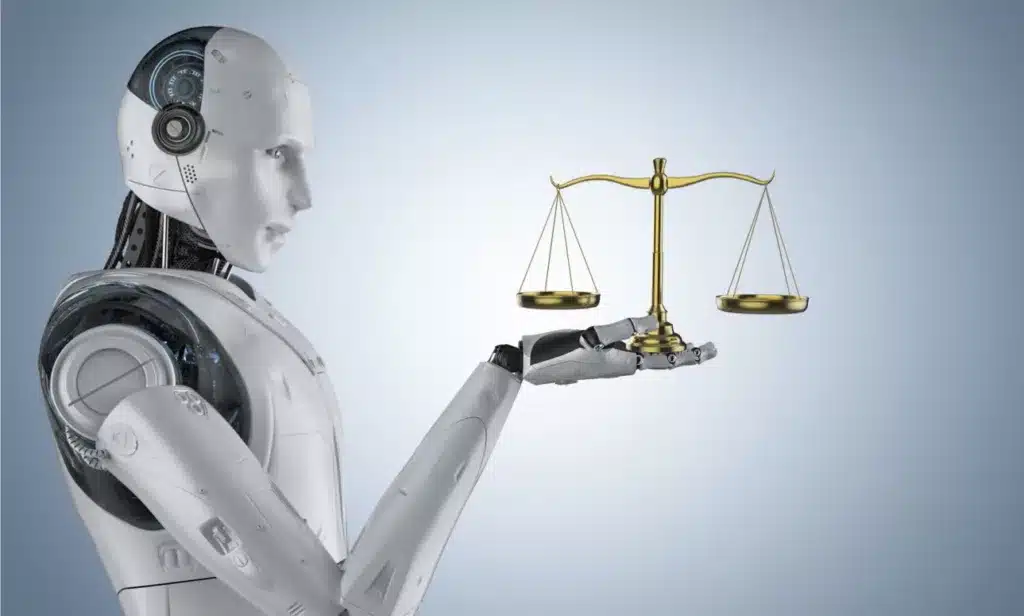ChatGPT is here to stay, and it wants to help us on our legal journeys. Advancements in artificial intelligence (AI) technology have revolutionized the legal field, offering new tools and resources to both attorneys and self-represented litigants. However, ChatGPT and similar programs have introduced a concerning issue, that of “fake cases” in legal briefs. These fabricated cases or quotations can have significant consequences for pro se litigants.
In a federal case against a former employer, a pro se litigant was threatened with dismissal and sanctions for filing a complaint replete with nonexistent case law. The judge was apoplectic:
Although courts “make some allowances for the pro se Plaintiff’s failure to cite to proper legal authority,” courts do not make allowances for a Plaintiff who cites to fake, nonexistent, misleading authorities…
As applied here, Plaintiff cited to several fake or nonexistent opinions…
The foregoing should provide Plaintiff with enough constructive and cautionary guidance to allow her to proceed pro se in this case. But, her pro se status will not be tolerated by the Court as an excuse for failing to adhere to this Court’s rules; nor will the Court look kindly upon any filings that unnecessarily and mischievously clutter the docket.
Thus, Plaintiff is hereby advised that she will comply with this Court’s local rules, the Court’s Guide for Pro Se Litigants, and the Federal Rules of Civil Procedure. Any future filings with citations to nonexistent cases may result in sanctions such as the pleading being stricken, filing restrictions imposed, or the case being dismissed.
— Chief Judge William P. Johnson, U.S. District Court for the District of New Mexico
ChatGPT has caused similar damage to many other pro se litigants.
This is not just a problem for non-lawyers. Members of the bar nationwide are being similarly lambasted for filing hallucinatory briefs in court, but they are rarely punished as severely as non-lawyers.
Here are eight reasons why “fake cases” pose a specially difficult problem for pro se litigants:
1. Unfavorable Outcomes Due to Misrepresentation
Citing fake cases in legal briefs misrepresents the legal authority supporting your arguments. This undermines the integrity of your case, potentially leading to unfavorable outcomes, frustrated judges, and confused opponents. All of which can be detrimental to your case.
2. Wasted Time and Resources
Pro se litigants already face time and resource constraints. So, when you rely on fake cases, it leads to wasted effort spent researching and analyzing inapplicable legal precedents. This diversion of resources can hinder your ability to focus on building a strong case.
3. Increased Costs
Legal proceedings can be expensive, and pro se litigants often choose self-representation to mitigate costs. However, citing fake cases can result in sanctions, unnecessary motions, appeals, or additional legal research, leading to increased expenses. These financial burdens can deter you from pursuing your rights and accessing justice.
4. Damaged Credibility
As a pro se litigant, you’re already on the back foot in your case due to real or perceived lack of knowledge of the law and the legal system. So, submitting fake cases undermines your credibility even more both within the legal system and in the eyes of opposing parties. It can tarnish your credibility and hinder your ability to present future cases effectively.
5. Lost Opportunities for Legitimate Claims or Defenses
The complexities of case law and legal principles make it difficult to discern valid precedents from fake ones. By focusing on fake cases, you may divert attention from legitimate claims or defenses that might be available to you. This distraction can hinder your ability to present compelling arguments on the valid aspects of their case. In other words, finding fake cases will make you miss real ones that can help you.
6. Ineffective Legal Strategy and Arguments
Relying on fake cases reflects an ineffective legal strategy. The successful case is built on a solid legal foundation. That includes writing legally sufficient claims and defenses and supporting them with real research. Foregoing this approach and using fake cases erodes the effectiveness of your legal approach and helps you lose faster. Further, fake cases can lead you to construct flawed legal arguments based on inaccurate or fabricated legal principles. This can result in your arguments being effectively countered by opposing parties, ridiculed, and or dismissed by the court.
7. Unequal Access to Justice
The use of fake cases exacerbates existing inequalities in the legal system. Pro se litigants, who often lack access to legal resources, may be more susceptible to relying on inaccurate information. This further widens the gap between those with legal representation and those without, further damaging the principle of equal access to justice.
8. Overconfidence and False Assurance
The availability of AI tools can provide a false sense of assurance, leading you to believe you have access to comprehensive and accurate legal information. This overconfidence may result in a failure to conduct proper legal research or seek appropriate legal advice, ultimately weakening your case and jeopardizing your chances of success.
Conclusion
The presence of “fake cases” in legal briefs poses significant challenges for pro se litigants. From misrepresenting legal authority to wasting time, resources, and money, the consequences are far-reaching. It is essential that pro se litigants have access to the reliable legal resources, educational support, and guidance available at Courtroom5. By empowering pro se litigants, we can foster an environment that upholds the principles of justice, fairness, and equal access to justice for all.



